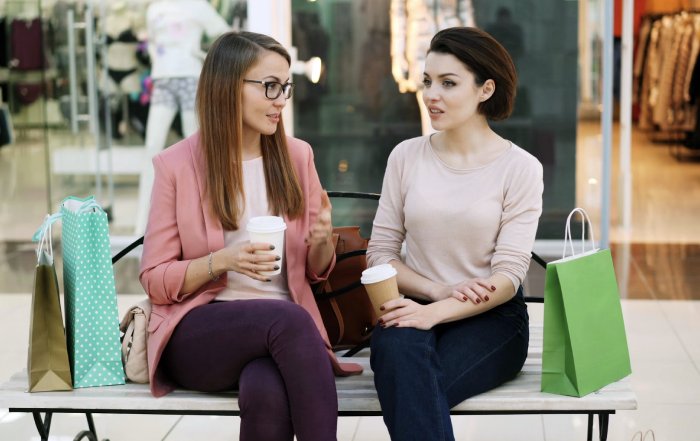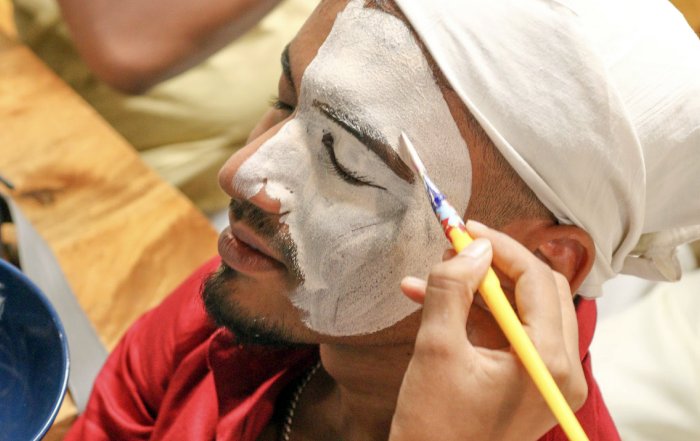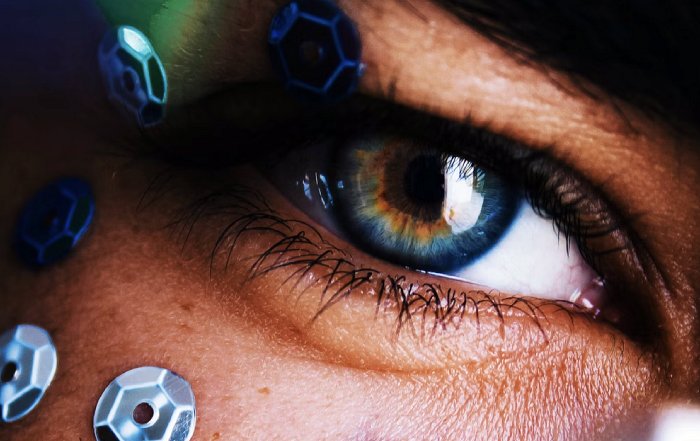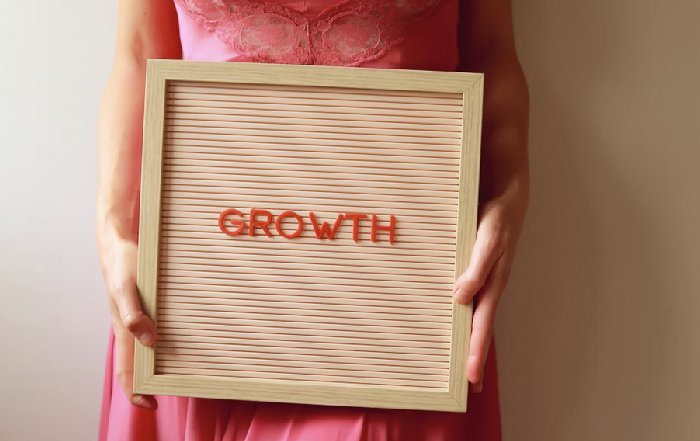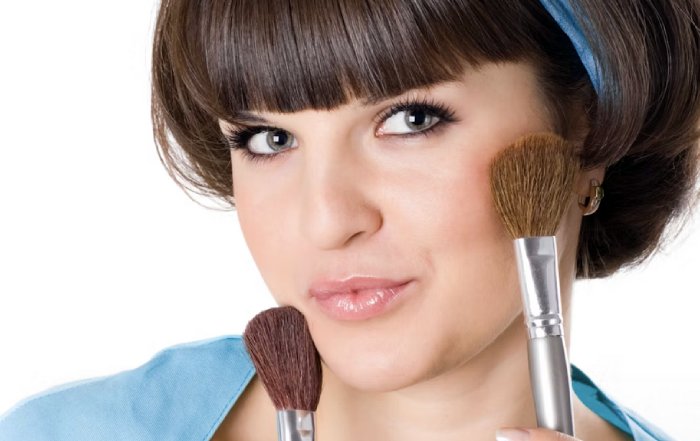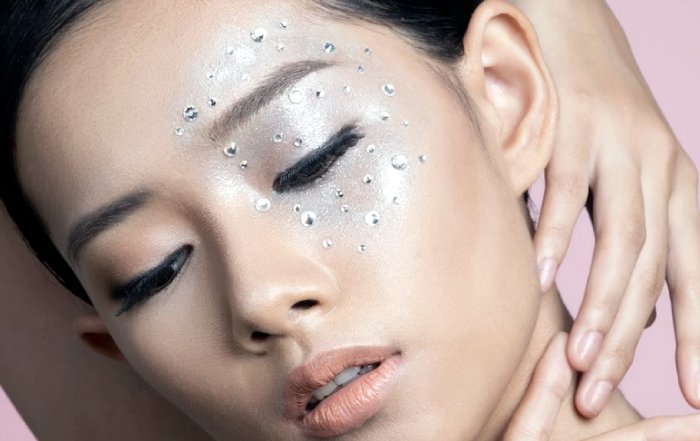How Consumer Trust Shapes Beauty Brand Success
Trust as the Defining Advantage in a Converging Beauty Landscape
By 2026, the global beauty market has become a complex ecosystem where skincare, wellness, nutrition, technology, and fashion intersect, and in this environment, consumer trust has emerged as the decisive factor that separates enduring brands from short-lived trends. Product performance, design, and celebrity influence still matter, but in markets from the United States and the United Kingdom to South Korea, Japan, Brazil, and South Africa, purchasing decisions are increasingly anchored in how much consumers trust a brand's science, ethics, leadership, and long-term intentions. For BeautyTipa, which serves an international audience seeking clarity across beauty, wellness, and lifestyle, trust is no longer an abstract ideal; it is the practical lens through which the success or failure of modern beauty brands can be understood.
The global beauty and personal care sector continues to expand, with analysts at platforms such as Statista and Euromonitor International tracking steady growth across skincare, makeup, fragrance, haircare, and wellness-adjacent categories. Yet this growth is unevenly distributed, flowing disproportionately toward companies that have invested in transparency, verifiable efficacy, and responsible business models. In mature markets like Germany, France, Canada, Australia, and the Nordic countries, consumers reward brands that communicate with precision and humility, while in fast-growing regions across Asia, Africa, and South America, trust often determines which local champions can scale beyond their home markets and compete with multinational players. Across the dedicated sections of BeautyTipa, from beauty and skincare to brands and products and trends, the same conclusion emerges: trust is a measurable business asset that shapes innovation pipelines, marketing strategies, market entry decisions, and ultimately brand valuation.
From Aspirational Imagery to Verifiable, Evidence-Driven Beauty
The beauty industry has moved decisively away from purely aspirational narratives toward a more rigorous, evidence-driven paradigm, where claims about anti-aging, brightening, barrier repair, or microbiome support must withstand the scrutiny of increasingly informed consumers. Regulatory authorities such as the U.S. Food and Drug Administration and the European Commission have made guidance and enforcement actions far more visible, prompting consumers in North America and Europe to question vague promises and marketing hyperbole. In parallel, social media and digital communities have democratized access to clinical insights, enabling users in markets like the United States, the United Kingdom, Germany, South Korea, and Japan to challenge brands directly when claims appear exaggerated or unsupported.
In this context, trust is built through evidence that is both rigorous and intelligible. Brands that invest in well-designed clinical studies, publish high-level methodologies, and reference peer-reviewed research enjoy a credibility premium over competitors that rely primarily on storytelling. Platforms such as PubMed and professional bodies like the British Association of Dermatologists have become regular touchpoints not only for dermatologists and researchers but also for dedicated consumers who want to understand the mechanisms behind retinoids, antioxidants, peptides, and newer bioactive compounds. Through its own guides and tips, BeautyTipa increasingly highlights the work of dermatologists, cosmetic chemists, and clinical nutrition experts, reflecting a broader industry shift in which scientific expertise is now central to brand authority and long-term trust.
Ingredient Transparency and the Empowered Global Consumer
The ingredient list, once a technical afterthought printed in small font, has become a primary communication tool and a key signal of integrity. Consumers across the United States, Canada, the United Kingdom, the Netherlands, Scandinavia, South Korea, Japan, Australia, and Singapore routinely scrutinize labels, cross-reference ingredients through databases, and compare formulations across brands and price points. Resources such as the Environmental Working Group's Skin Deep database and the ingredient resources of bodies like the Personal Care Products Council have empowered a new generation of ingredient-literate shoppers who expect full disclosure and clear explanations of function, safety, and sourcing.
For brands, partial disclosure or opaque language is increasingly perceived as a red flag, particularly in Europe and North America where consumer advocacy groups and digital communities quickly call out inconsistencies. Companies that publish comprehensive ingredient glossaries, explain the rationale behind preservatives, fragrance components, and stabilizers, and clarify the difference between hazard-focused and risk-based assessments tend to build deeper, more resilient relationships with their customers. BeautyTipa, through its coverage of routines and wellness, observes that markets such as Germany, the Netherlands, Sweden, Norway, and Denmark have been especially influential in normalizing expectations around clean labeling, minimal formulations, and verifiable sourcing, setting standards that now influence product development for global launches.
Beauty Brand Trust Framework 2026
Explore the key pillars driving consumer trust in the global beauty industry
Scientific Rigor
Evidence-driven claims backed by clinical studies and peer-reviewed research
Trust Impact Score
Ingredient Transparency
Full disclosure of formulations with clear explanations of function and safety
Trust Impact Score
Sustainability & Ethics
Responsible practices across animal welfare, climate impact, and supply chain
Trust Impact Score
Digital Transparency
Honest representation, clear disclosures, and authentic consumer engagement
Trust Impact Score
AI & Data Privacy
Responsible personalization with transparent data governance and consent
Trust Impact Score
Inclusivity & Representation
Diverse product ranges and cultural intelligence across global markets
Trust Impact Score
Global Trust Markets
Key Business Insights
Trustworthy brands achievehigher customer lifetime valueand significantly lower churn rates across all markets
Trust directly influencesvaluation multiplesand acquisition prospects in both public and private markets
Brands with strong internal cultures attract topscientific and digital talentessential for innovation
Regional adaptation withlocal cultural intelligencebridges global scale with market-specific trust drivers
Sustainability, Ethics, and the Moral Foundations of Beauty Trust
By 2026, sustainability and ethical conduct are no longer peripheral themes but integral components of how consumers evaluate beauty brands. Shoppers in France, Italy, Spain, Switzerland, the United Kingdom, Canada, Australia, and New Zealand increasingly ask whether a product aligns with their views on animal welfare, climate impact, biodiversity, human rights, and waste reduction. The simple cruelty-free logo has evolved into a broader assessment of how a company behaves across its entire value chain, from raw material extraction and manufacturing to logistics, retail, and end-of-life disposal. Organizations such as PETA and Leaping Bunny continue to shape expectations around animal testing, while frameworks like the UN Global Compact and the Global Reporting Initiative guide companies in disclosing their environmental, social, and governance performance.
For beauty brands operating across North America, Europe, Asia, and emerging markets, sustainability has become a core trust driver, influencing everything from packaging decisions to ingredient sourcing strategies. Detailed sustainability reports, verified carbon reduction targets, responsible palm oil or mica sourcing, and investments in refill systems or circular packaging all contribute to a perception of seriousness and accountability. Investors and corporate strategists increasingly rely on ESG data, with consultancies such as Deloitte helping institutional investors integrate sustainability metrics into their valuation models. On BeautyTipa, particularly within business and finance and technology beauty, sustainability is covered not as a marketing slogan but as a structural factor that can enhance or erode trust, affect regulatory risk, and determine long-term brand equity.
Digital Transparency, Social Media Scrutiny, and the Fragility of Reputation
The digital environment that has powered the rise of many beauty brands has also made reputations more fragile and more dependent on consistent, transparent behavior. Platforms such as Instagram, TikTok, and YouTube enable rapid storytelling and community-building for brands in the United States, Brazil, Mexico, South Korea, Thailand, and beyond, yet they also give consumers and creators the power to expose misleading claims, insensitive campaigns, or poor customer experiences in real time. A single viral video can reshape perceptions of a product's safety, inclusivity, or authenticity across multiple continents within days.
Regulators have responded to this environment by sharpening expectations around disclosure and endorsements. The U.S. Federal Trade Commission and the UK Competition and Markets Authority have emphasized clear labeling of sponsored content and honest representation of results, while similar bodies in the European Union and Asia-Pacific have issued parallel guidance. Brands that allow room for unscripted reviews, accept critical feedback without retaliation, and avoid over-edited influencer partnerships are more likely to be perceived as trustworthy, particularly by younger demographics in Canada, Australia, Singapore, and the Nordic countries. Through its coverage of trends and events, BeautyTipa has observed that consumers increasingly gravitate toward educational, transparent content that acknowledges limitations and potential side effects, rather than promising flawless transformations.
Scientific Rigor and the Professionalization of Skincare and Wellness
The convergence of dermatology, nutrition, and wellness within the beauty category has elevated the importance of scientific rigor, especially in high-value markets such as the United States, Germany, Switzerland, South Korea, Japan, and the United Kingdom. Consumers now expect meaningful distinctions between cosmetic, cosmeceutical, and quasi-pharmaceutical products, and they look for alignment with guidance from professional societies and academic institutions. Organizations such as the American Academy of Dermatology and the European Academy of Dermatology and Venereology play a growing role in framing public understanding of conditions such as acne, rosacea, hyperpigmentation, and eczema, as well as the evidence base for popular actives.
Brands that integrate dermatologists, pharmacists, nutritionists, and microbiome researchers into their product development processes, and that share at least headline data from controlled studies, gain a level of authority that purely marketing-led brands cannot easily match. This is particularly visible in markets like South Korea and Japan, where consumers have long been accustomed to science-forward formulations, and in Germany and Switzerland, where medical-grade skincare has a strong tradition. BeautyTipa reflects this professionalization across its coverage of health and fitness and food and nutrition, highlighting how sleep, diet, stress management, and exercise influence skin outcomes and how consumers increasingly view topical products as one part of a broader, evidence-based lifestyle strategy.
Personalization, AI, and the New Trust Contract in Beauty Technology
The rapid adoption of artificial intelligence, computer vision, and data analytics has transformed how beauty brands design experiences and recommend products, yet it has also introduced new trust challenges around privacy, bias, and transparency. Companies in the United States, China, South Korea, Japan, and across Europe now deploy AI-powered skin analysis, AR try-on tools, and algorithmic recommendation engines that draw on large datasets, including facial images and behavioral patterns. While these technologies can deliver highly personalized experiences, they also raise questions about how data is collected, stored, shared, and potentially monetized.
Institutions such as the World Economic Forum and the OECD have emphasized responsible AI and data governance, and their guidance directly shapes expectations among regulators and consumers in regions such as the European Union, the United States, and Asia-Pacific. In Europe, frameworks like the General Data Protection Regulation have accustomed consumers to demand clear consent mechanisms, data minimization, and the right to access or delete personal data. For beauty brands, transparent privacy policies, robust cybersecurity, explainable recommendation logic, and clear boundaries around third-party data sharing are now essential components of trust. BeautyTipa, through its technology beauty coverage, pays particular attention to how AI tools are designed and communicated, recognizing that the long-term viability of digital beauty experiences depends on balancing personalization with respect for autonomy and dignity.
Inclusivity, Representation, and Cultural Intelligence as Trust Imperatives
Trust in beauty is also profoundly shaped by whether consumers feel genuinely represented and respected in product ranges, marketing narratives, and corporate behavior. Over the past decade, progress has been made in shade diversity, gender inclusivity, and representation of different ages, body types, and cultural backgrounds, yet gaps remain, particularly in regions with complex demographic profiles such as the United States, the United Kingdom, South Africa, Brazil, and parts of Asia. Media platforms like Allure and Vogue Business frequently document both positive examples of inclusive innovation and damaging missteps where stereotypes, tokenism, or cultural appropriation erode trust.
Brands that embed inclusivity into product development, conduct genuine local research, and employ diverse teams across marketing, R&D, and leadership tend to build more enduring emotional bonds with consumers. Addressing specific needs such as melanin-rich skin, textured and curly hair, hyperpigmentation in humid climates, or sensitivity in colder regions signals a level of cultural and scientific understanding that goes beyond generic global launches. For markets like Brazil, Nigeria, India, Thailand, and Malaysia, localized solutions that respect climate, cultural rituals, and beauty ideals are particularly important. BeautyTipa, with its global lens and coverage of makeup and fashion, consistently highlights that inclusivity is now a foundational expectation; when brands fall short, the resulting backlash can be swift, global, and financially material.
The Financial Value of Trust: Brand Equity, Resilience, and Growth
From a business and finance perspective, trust has become a quantifiable driver of performance and resilience. Consulting firms such as McKinsey & Company and Deloitte have repeatedly shown that companies perceived as trustworthy enjoy higher customer lifetime value, lower churn, more efficient marketing spend, and stronger pricing power. In the beauty sector, these dynamics play out as higher repeat purchase rates, greater openness to cross-category expansion, and a willingness among consumers to recommend brands to peers across social networks and offline communities.
For publicly listed conglomerates and venture-backed or private equity-backed indie brands, trust now influences valuation multiples, acquisition prospects, and exit options. Investors assess regulatory compliance histories, ESG performance, digital reputation, and scientific credibility as part of their risk analysis, and they are increasingly cautious about brands that rely heavily on hype without robust foundations. On BeautyTipa, particularly within business and finance, trust is treated as a strategic asset that can be strengthened through governance, independent board oversight, stakeholder engagement, and transparent reporting. Brands that institutionalize trust-building rather than treating it as a marketing function are better positioned to navigate macroeconomic volatility, supply chain disruptions, and shifting consumer expectations across North America, Europe, Asia, and beyond.
Talent, Culture, and Internal Trust as the Engine of External Credibility
External trust is closely linked to the internal culture of beauty organizations, as employees increasingly share their experiences on platforms such as LinkedIn and Glassdoor. Professionals in the United States, the United Kingdom, Germany, Switzerland, Singapore, and the Nordic countries, as well as in fast-growing hubs like Dubai and Singapore, are more selective about employers, seeking alignment between corporate messaging and internal practices regarding diversity, equity, inclusion, mental health, and ethical conduct. When internal realities diverge sharply from external claims, the resulting leaks, whistleblower reports, or social media discussions can quickly undermine consumer confidence.
For beauty brands, building internal trust through transparent communication, fair compensation, safe working conditions, and clear paths for career development has become an essential component of external credibility. Employees who feel respected and informed are more likely to act as authentic brand ambassadors in retail environments, digital channels, and professional networks. BeautyTipa, through its focus on jobs and employment, tracks how employer reputation influences the ability of brands to attract the scientific, creative, and digital talent required to innovate in areas such as advanced formulations, AI tools, and experiential retail. In an industry where expertise is a key pillar of trust, the competition for top chemists, dermatologists, data scientists, and brand strategists is intense, and companies with strong internal cultures gain a decisive advantage.
Globalization, Local Nuance, and Regional Trust Dynamics
While trust is a universal concept, its specific drivers differ across regions, reflecting variations in regulation, culture, climate, income levels, and historical experience with global brands. In North America, transparency about ingredients, data privacy, and social values tends to dominate, while in many Asian markets, innovation speed, texture sensoriality, and alignment with local beauty ideals carry particular weight. In Europe, regulatory rigor, sustainability credentials, and heritage often underpin trust, whereas in parts of Africa and South America, affordability, access, and support for local communities can be as important as ethical and environmental commitments. Organizations such as the World Trade Organization and the OECD provide useful context on how trade rules, regulatory harmonization, and safety standards shape consumer perceptions of both imported and domestic products.
Global beauty companies must therefore balance consistent core values with localized execution, adapting formulations, communication styles, and pricing strategies to fit local realities. Misjudging cultural norms, underestimating climate impacts on skin and hair, or failing to comply with local regulations can quickly erode trust, even if the brand enjoys a strong reputation elsewhere. BeautyTipa, through its international coverage, emphasizes the importance of listening to local consumers in markets such as China, Thailand, Japan, South Korea, Malaysia, South Africa, and Brazil, and of collaborating with regional experts who understand local ingredients, rituals, and expectations. In this way, trust becomes a bridge between global scale and local specificity rather than a casualty of standardized global strategies.
Education, Content, and the Role of BeautyTipa in Sustaining Trust
Educational content has become one of the most powerful tools for building and sustaining trust in beauty, as consumers worldwide seek not only products but also guidance and context. Readers in the United States, the United Kingdom, Germany, France, Italy, Spain, the Netherlands, the Nordic countries, Canada, Australia, New Zealand, Singapore, Japan, South Korea, and emerging markets across Africa and South America increasingly want to understand how to structure routines, interpret labels, integrate nutrition and fitness into their beauty strategies, and adapt regimens to different life stages and climates. Authoritative health resources such as Harvard Health Publishing and the Mayo Clinic provide medically grounded information that can complement brand communication and help consumers navigate complex choices.
For BeautyTipa, this educational imperative sits at the heart of its mission. Across sections such as skincare, routines, wellness, beauty, and the broader insights available on beautytipa.com, the platform aims to translate technical science, regulatory developments, and business dynamics into clear, actionable knowledge for a sophisticated but time-constrained audience. By highlighting credible experts, explaining emerging technologies, and contextualizing trends within broader social and economic shifts, BeautyTipa positions itself as a trusted intermediary between brands, professionals, and consumers, reinforcing the notion that informed decision-making is the foundation of long-term trust.
Looking Forward: Trust as the Strategic North Star for 2026 and Beyond
As the beauty industry moves deeper into 2026, with continued convergence between beauty, wellness, technology, food, fitness, and fashion, consumer trust is set to become even more central to strategic decision-making. Heightened regulatory scrutiny, accelerated innovation cycles, geopolitical uncertainty, and growing consumer awareness mean that superficial narratives and short-term tactics are less effective than ever. Brands that treat trust as a core strategic asset-supported by scientific rigor, ethical operations, cultural intelligence, and transparent communication-will be better equipped to adapt to new regulations, respond to economic shocks, and serve evolving expectations in regions from North America and Europe to Asia, Africa, and South America.
For BeautyTipa, serving a global readership that includes beauty enthusiasts, industry professionals, investors, and innovators, the mandate is to continue foregrounding experience, expertise, authoritativeness, and trustworthiness in every piece of content. By integrating insights from beauty, business and finance, technology beauty, and adjacent areas such as wellness, nutrition, fitness, makeup, and fashion, the platform seeks to help its audience navigate an increasingly sophisticated marketplace with confidence. In an era where trust has become the most valuable currency in beauty, the brands and platforms that invest in building and protecting it-consistently, transparently, and globally-will be the ones that define the next chapter of the industry.

